
About Us
UPROOT seeks to strengthen, scaffold, and expand Indigenous content and practices within UBCs pharmaceutical curriculum.
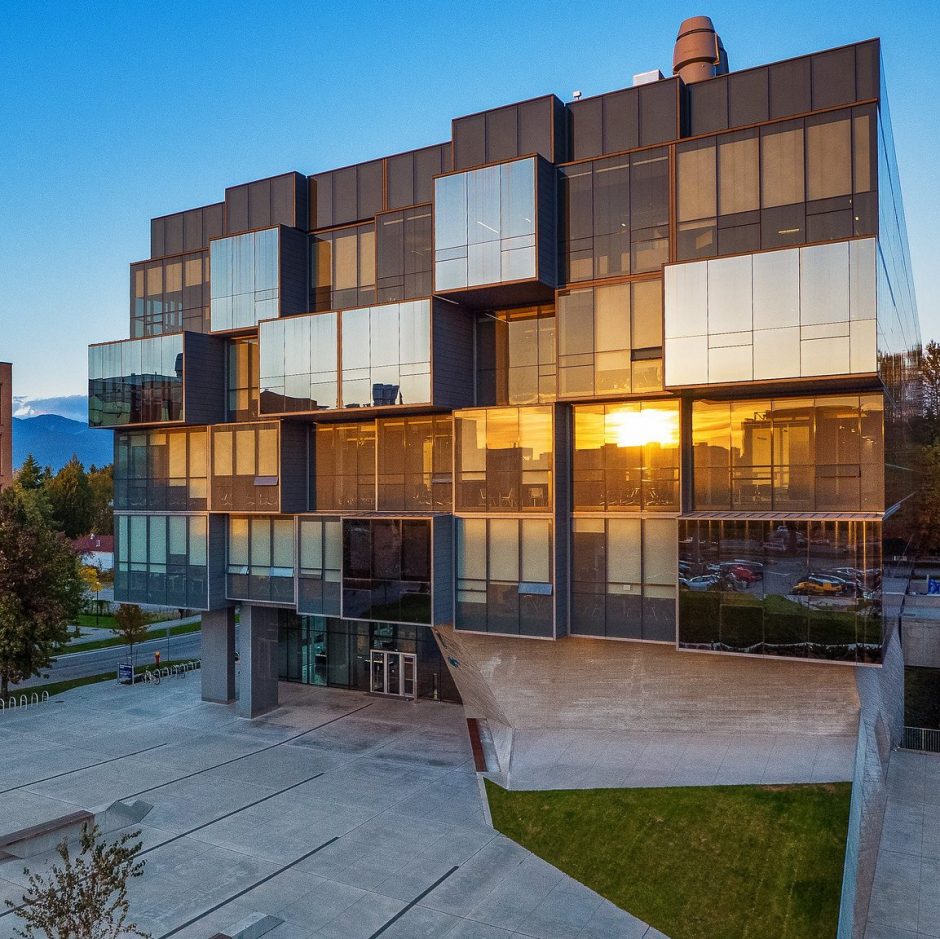
Background
The project team is fortunate to be based on a deep foundation of collaborative and productive partnerships. The team is composed of a broad range of experts, scholars, community members, and students with diverse connections to Indigenous Nations across Canada.
Collectively, the team has adopted the name UPROOT, symbolizing what, how, and why we are doing this work. Our team acknowledges the work we do may be within a colonial structure, but we hold a commitment to practice in a manner of mutual respect, responsibility, relevance, and reciprocity throughout, prioritizing relationships above all. Some relationships among the team members have existed for 10 years.
Two-Eyed Seeing Approach
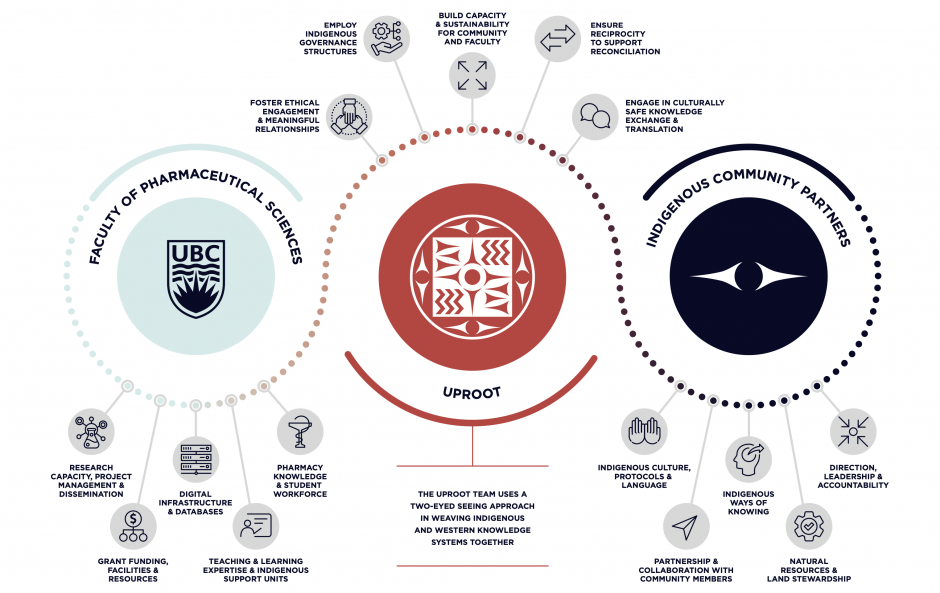
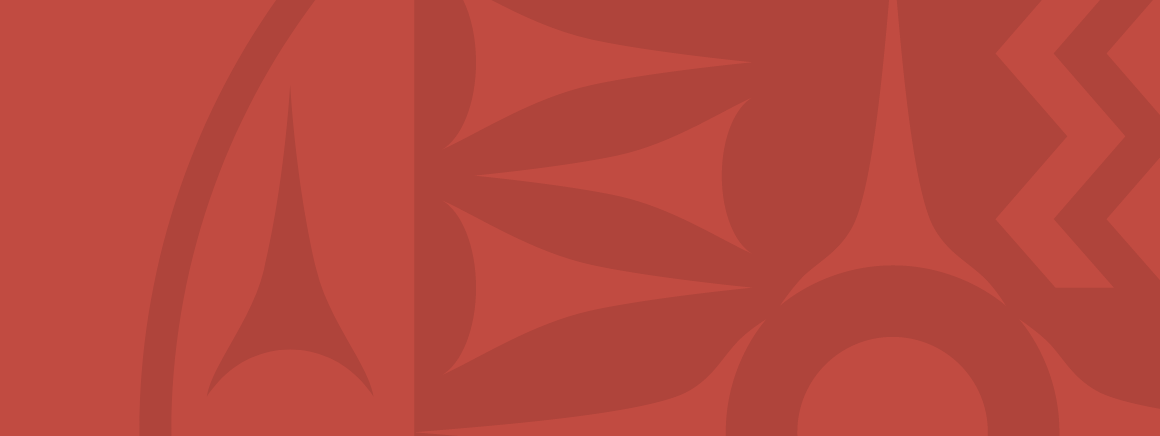
The Name. The Logo. The Artist.
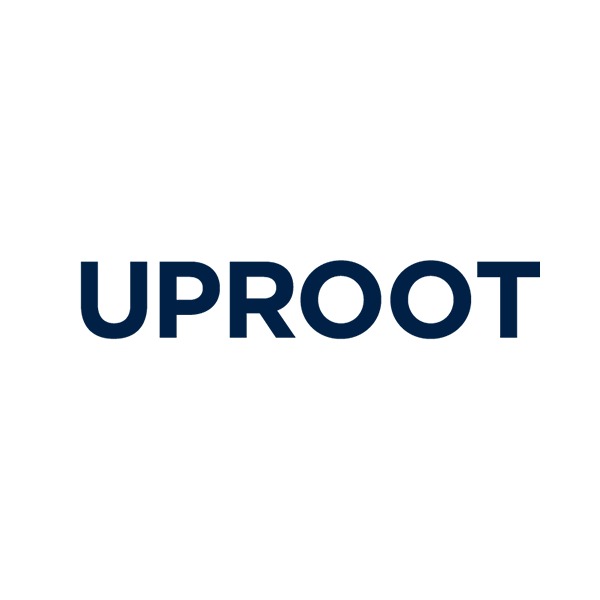
The Name
The name UPROOT comes from what, how, and why we are doing this work.
We are uprooting colonial processes and systemic barriers in our efforts to support decolonization and indig- enization. We expect our students to uproot their own perceived cultural and social biases, as part of their self-journey in reconciliation. Finally, our team understands and acknowledges deep-seeded or rooted issues of our past and present colonial history in order to move towards respect, responsibility, relevance and reciprocity with community partners.
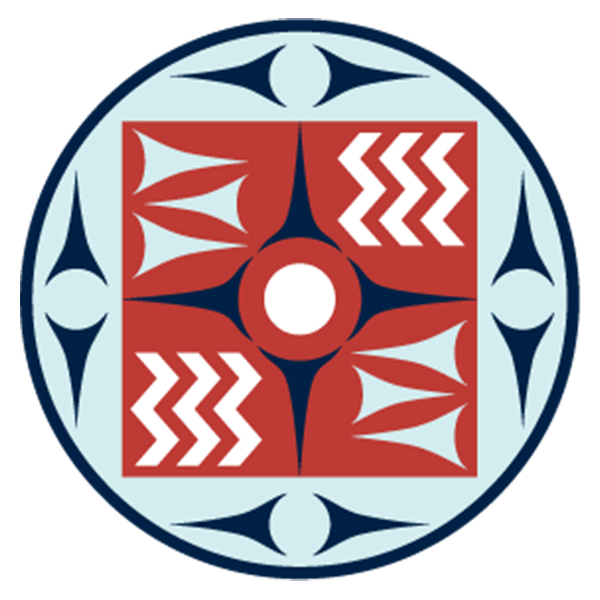
The Logo
The UPROOT logo is created by designer Debra Sparrow—a Musqueam Coast Salish artist. The logo is an amalgamation of traditional Indigenous concepts and contemporary design components.
The circle represents the spindle whirl, life’s existence among us all, and the humanness of our world scale. The inner parts of the design translate to the fibres of earth and patterns of connection, acknowledging the land and its healing power. The center elements are drawn from traditional regalia used in healing ceremonies.
The design acts as a pedagogical tool illustrating the story of the land, water, and its spiritual connectedness.
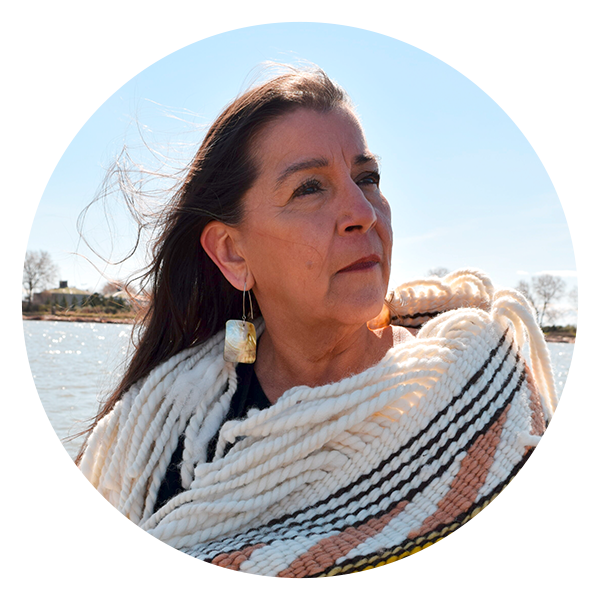
The Artist
Debra Sparrow, born and raised on the Musqueam Indian Village, is a visual artist, graphic designer, knowledge keeper, and leading figure in the revival of Musqueam Coast Salish weaving.
Sparrow creates art that embodies traditional Musqueam teachings while embracing innovative and contemporary design. Her hope is to educate others about the depths and integrity of Musqueam history through her artwork, activism, and public speaking.
Position Statements
Land Acknowledgement
The UPROOT Team would like to acknowledge that the University of British Columbia’s Vancouver campus is located on the traditional, ancestral, and unceded territory of the xʷməθkʷəy̓əm (Musqueam) people. We would also like to acknowledge that Indigenous and non-Indigenous members of our team work, live, and play in communities across British Columbia and represent diverse cultural backgrounds. Our Indigenous partners represent themselves as individuals and do not speak for their respective nations or communities as a whole. These distinct perspectives enrich our relationships, collaborations, and experiences.
Terminology
The UPROOT Team recognizes that the past and present history of inappropriate terminology has been paternalistic and damaging. We acknowledge that there is no single term that is universally accepted as the identity of the first people of Canada and that each of our partnering Nations has their own preferred terminology. If appropriate, we commit to using terminology that reflects partners’ traditional and cultural names. When our work requires a more collective term that recognizes multiple diverse communities, we will use the word ‘Indigenous’, as defined by the “University of British Columbia’s Indigenous Peoples: Language Guidelines”. UBC defines ‘Indigenous’ as a term that “encompasses First Nations, Métis and Inuit people, either collectively or separately, and is a preferred term in international usage, e.g., the ‘U.N. Declaration on the Rights of Indigenous Peoples.’ In its derivation from international movements, it is associated more with activism than government policy and so has emerged, for many, as the preferred term.” (UBC Equity & Inclusion Office, n.d.)
Indigeneity
The UPROOT Team recognizes that perceptions of Indigenous identity and Indigeneity are complex and diverse. The Indigeneity of our students, team members, and community partners exists on a spectrum, representing different cultures and upbringings. We recognize that these unique journeys and perspectives are important aspects of our collaboration and do not privilege or prioritize one knowledge system over another. It is not our place to verify the Indigenous identities of our students and team members.
Approach to Teaching, Educational Leadership, and Research
The UPROOT Team prioritizes our relationships and reciprocity over traditional academic metrics of success in our work related to teaching, educational leadership, and research. We commit to our Two-Eyed Seeing approach to weave Indigenous and western knowledge systems in the decolonization and Indigenization of pharmacy education. This involves defining deliverables that are bi-directional and prioritizes community-based needs and opportunities, while honouring principles of Ownership, Control, Access, and Possession (OCAP).
Responsibility of Non-Indigenous Educators/Team Members
UPROOT consists of Indigenous and non-Indigenous team members. We believe all non-Indigenous team members have a responsibility and role in reconciliation in Canada and should not rely solely on Indigenous peoples for solutions. We recognize that we are all on different journeys towards reconciliation and will create safe spaces for conversations without the expectation that Indigenous team members will or should have all the answers.